In this episode of Foresight Africa podcast, David Moinina Sengeh, minister of basic and senior secondary education and chief innovation officer in Sierra Leone, urges other African policymakers to invest in education, and offers insight on how AI can be leveraged for educational improvement. Minister Sengeh also talks about his new book, Radical Inclusion, and his music as a way to connect with young people.
The music track “Alagalan (feat. Augu6tine)” is included by permission of David Moinina, and can be heard on the album Love Notes to Salone (Moinina & Augu6tine, 2020).
- Subscribe and listen to Foresight Africa on Apple, Spotify, and wherever you listen to podcasts.
- Learn about other Brookings podcasts from the Brookings Podcast Network.
- Sign up for the podcasts newsletter for occasional updates on featured episodes and new shows.
- Send feedback email to [email protected].
TRANSCRIPT
[music]
ORDU: I’m Aloysius Uche Ordu, director of the Africa Growth Initiative at the Brookings Institution, and this is Foresight Africa podcast.
Since 2011, the Africa Growth Initiative at Brookings has published a high-profile report entitled Foresight Africa. The report covers key events and trends likely to shape affairs in Africa in the year ahead. On this podcast, I engage with the report authors as well as policymakers, industry leaders, Africa’s youths, and other key figures. Learn more on our website, Brookings dot edu slash Foresight Africa podcast.
My guest today is Dr. David Moinina Sengeh. David is the minister of basic and senior secondary education and chief innovation officer for the government of Sierra Leone. He is a TED Fellow, a World Economic Forum young global leader, and he was included in the 2013 Forbes “30 under 30” list. He serves as chairman of the Global Education Monitoring report to UNESCO. David coauthored a brilliant essay in Foresight Africa 2023. He has just published his first book titled, Radical Inclusion. David graciously agreed to join me today to talk about his book and his Foresight essay.
David, a warm welcome to our show.
SENGEH: Thank you very much.
ORDU: So, for starters, I wondered if you could briefly tell us about your journey prior to embarking on your political career as education minister and chief innovation officer for Sierra Leone.
SENGEH: It’s a very interesting journey that started in Bo, where I was born. I did grew up in Bo in the south of Sierra Leone, it’s pretty much central Sierra Leone. And went to primary school there, went to Prince of Wales in Freetown, and then got a scholarship to the United World College in Norway, after my secondary school exams. From Norway, I went to Harvard and studied biomedical engineering, working on inhalable TB vaccine research. And I really had a fantastic time at Harvard and at college because I could explore and play football—club soccer—and also really meet people from all kinds of backgrounds.
I studied engineering there, and then when I finished, I proceeded to MIT Media Lab to do my Ph.D. And I worked on prosthetic research. I developed prosthetic interfaces—there’s a part of a prosthesis that connects the body to the prosthetic leg, and that is the socket. And I had learned many years earlier growing up in Sierra Leone that amputees who receive these free prostheses couldn’t use them because the prosthetic socket was uncomfortable.
I would learn later on that this was a problem that was not just limited to Sierra Leone, and that even if you had powerful robotic ankles, like my professor at M.I.T., Hugh Herr, and your prosthetic socket was uncomfortable, you would not use them. So, I worked with Hugh and did my Ph.D. in developing some patented technology that combines magnetic resonance imaging, soft tissue modeling, and 3D printing multi-material prosthetic sockets that were more comfortable for the human body.
And when I finished this, after my Ph.D., I moved to Nairobi to work with IBM Research Africa. There I started working on data science and to see how we could do some natural language processing, how we could support healthcare workers to make better decisions through cancer imaging, cervical cancer, and machine learning. And I worked in Nairobi and Johannesburg.
And it was then that President Bio called me after he won the elections in Sierra Leone in 2018 to say, I think you should come and join government. And he invited me to serve as chief innovation officer and ultimately minister of basic education.
ORDU: That’s quite an impressive journey. Congratulations on all your accomplishments. You were also included on the 2013 Forbes “30 under 30.” For the benefit of our youths across the African continent and elsewhere, how does one get to enter the Forbes list or become a WEF young global leader?
SENGEH: I think you have to be lucky. I think there are lots of people who are deserving of these awards and recognitions who may not necessarily get, given the opportunity. But they say luck often favors the prepared. For you to be lucky, you have to have been working on something that has an impact, that has a potential to impact lots of people. As young people, we must be solving problems that will affect people’s lives, that will change and shape society.
And for me, I had innovated on developing prosthetic interfaces that will work anywhere in the world. I did have my people in mind. I did have Sierra Leone in mind during those designs. And I did have my professor in mind when I worked on those designs.
And the invention that we came up with was, by the way, something that many people had told me was impossible, including my lab mates. And so, it was the great determination and I think sheer passion and will to build something that works for people that I think helped us get through and pursue these innovations.
ORDU: Then the advice there for young people across the continent is well taken—luck favors the prepared, as you put it. This is great. Over your tenure as minister of education and chief innovation officer for your country, Sierra Leone, what challenges have you faced, David, and how difficult was the transition from M.I.T. postdoc and the other places you worked in in Nairobi as well as in South Africa, compared to being involved in the highest echelons of policymaking and decision-making in Sierra Leone.
SENGEH: I must say governance and public sector work is difficult. I won’t lie to you. I think the first thing is before I even became a minister, my parents said I shouldn’t do it. Everybody I knew said, No, don’t do it. Don’t go into public sector, you have a bright future ahead of you in private sector, in research.
I think the challenges were even before I took the job, but I ultimately took the job. And I remember when I was going through the parliamentary approval process, there were members of Parliament who told me in my face that I will fail, that I will not be a good minister because I didn’t have the experience. I was too young, I couldn’t deal with teachers.
And it was very interesting because I remember one of the first meetings I had in my office as well, I had staff who will tell me, even though I was minister, that my ideas wouldn’t work in that they were not progressive, and they will bring failure to the system.
And if I had listened to those people, that was when I would have packed my bags. I mean, in fact, the day that I took the oath of office was when the president said pregnant girls could not go to school. That gave me the biggest challenge ever.
I suppose I reference these things to say the challenges are there before you even do the difficult work of being minister and being in public sector.
And I, ultimately, as a young person who dressed differently, who wore dreadlocks that were gold tinted, who people felt was an outsider, I think what I had to focus on was not those things that people thought were challenges and limitations; it was challenges and limitations for them. But for me they were assets. It meant I could engage young people differently. I was accessible to students. They could relate with me. I could play football with them. I could go and rap and make music with artists about getting degrees and about reducing exam malpractice. And I could engage teachers differently because my parents and family members were all teachers. And I do teach—I lecture myself at the university.
So, the things that people thought were deficits I used as assets. And so, I didn’t really see those challenges as insurmountable, but I saw them as opportunities for me to learn, get new feedback, but use what I know and my assets that people thought were my weaknesses to my advantage and to deliver.
And once one starts delivering, you change people’s perspectives. And whatever doubts they had start creeping in, well the doubts if even they doubted their own ideas or they doubted you, it gives way, and they begin to follow you and see that you’re serious or that you have the expertise to be able to deliver and be their leader.
But I think the biggest challenges I had were my age; were around how I dressed; were around how they felt my ideas were too progressive; were how I governed and led from the field, from the front; were how I participated socially in social media in public, my communication style—I like to have an engaging and inclusive communication. And they thought those were challenges and they used it against me, but I use them as assets instead.
ORDU: Africa and Sierra Leone, of course, are the better for it. We are glad that you persisted in spite of those challenges.
David, let’s now turn to your brilliant essay in Foresight Africa 2023, which is titled “International education financing will make or break the SDGs.” In that piece you wrote about the Free Quality School Education program launched in 2018, the Sierra Leone Alliance for Foundational Learning, and the Education Innovation Challenge. What are the emerging lessons from these programs and how replicable are they in other African countries?
SENGEH: I think when we speak about education financing, people think about it just from a spend, an expense point of view. And that’s the mistake. Education financing is an investment. These are investments that have long-term returns and also short-term returns. And it’s important for us to understand that spending on education, spending on human capital in Africa is not an option. Our future depends on it, our ability to be economically viable and globally competitive economies and nations depend on it. Young people must have the requisite skills to participate in full democratic societies and contribute to the global economy.
And in Sierra Leone, we are lucky that President Bio is a champion for free quality school education. President Bio is the one who decided that everybody should go to school. School fees were removed in public schools. We pay exam fees for everybody. We included school feeding, provided transportation. We have been able to buy over 10 million teaching and learning materials, recruited teachers. These are all investments. And we’ve been able to move our budgetary allocations to education from less than 15% in 2018 to over 22%.
We even expanded our education financing budget in the year of COVID, when everybody else was shutting and removing money from education. We understood that it was an investment, and it was at this critical moment that we needed to double down, and we needed to increase our investments and show our commitment to transforming education, which happens only if you put the right resources to it.
I think countries have to know that education is not a political machine. You don’t do it because you want to win the next election. You do it because you want to invest in the next generation. If our goal as leaders is to shape the next generation, then we invest in education.
And because winning elections do matter, if you do care about that, then it’s about investing in ways where you innovate and learn. So, in our Education Innovation Challenge, our objective there was to work with partners—public sector, private sector—to come up with new innovations that will lead to improved learning outcomes quickly at a reduced cost. And we’ve been able to test ways in which communities of practice with teachers, teacher support, teacher networks, how families are engaged, how we use data and innovation to improve learning outcomes—we’ve been able to test that and scale that.
Now, we went from a very small pilot that we’ve now expanded to nationwide for the Education Innovation Challenge. And we have to keep doing this where we are testing, we’re innovating, we’re getting results. And the learning outcomes have been showing that schools are safer, the kids are learning better, the teachers are happier, and we have communities and parents who are more involved in school management. Really when you look at the perception records, independently measured, education is doing well. And so, you can get the short-term goals as well from these innovations and from these investments that have long-term benefits.
ORDU: These are excellent to hear from Sierra Leone. I was just wondering, your neighbors, within the ECOWAS, are they paying attention to what’s going on in Sierra Leone under you and the president in terms of the remarkable progress you’re making in developing our human capital in your country?
SENGEH: One of the good things that’s happened is that because President Bio is a champion for foundational learning, as one of the five U.N. Secretary-General’s champions for Transforming Education Summit, he’s been able to share and bring in a lot more leaders to focus on education. And we in Sierra Leone hosted the Foundational Learning Exchange recently where we brought about five ministers from the ECOWAS region. This was the first time those ministers had met in decades to speak about assessments, to speak about foundational learning.
And just recently, about a month ago, I hosted a delegation from Guinea who was coming to Sierra Leone to learn about what we’re doing in terms of digital education and with our Giga Project. So, there’s been a lot more cross-collaboration. We engage with our friends from Rwanda quite often around how we bring connectivity to people. We engage with our friends from Togo to ensure how we develop digital solutions that people can use SMS-based solutions.
And now with regards to policies, we’re hopeful that our continent will begin to understand that investing in education is necessary for us to be able to participate in the Fourth Industrial Revolution. And this is what President Bio keeps sharing at the AU, at the high-level steering committee to UNESCO. But we have to keep learning from each other.
ORDU: David, at the end of your Foresight essay, you urge that education finance should be made a more central topic in all World Bank, IMF, and bilateral conversations. Could you help us expound on this recommendation and also explain how the multiple macroeconomic headwinds facing many of our countries in Africa today, including inflation, climate impact, and growing external debt, how are these headwinds impacting education outcomes in Sierra Leone?
SENGEH: It is important for us to know that when we speak about financing, education financing, we should not just be speaking about it as ministers of education or people in the education sector. It has to include the ministries of finance, it has to include the financial institutions like the World Bank, IMF. And this is why President Bio had led the call through the High-Level Steering Committee to IMF and World Bank and them to place education conversations centrally.
I am pleased to tell you that in the spring meetings of the World Bank, which just finished, we were able to have, I think it might be for the first time really, a high-level conversation between ministers of education and the ministers of finance at the World Bank-IMF spring meetings, which was as a direct response to the call that we had done in the Foresight essay, to the call that the high-level steering committee had done, and to the World Bank and other partners, understanding that this is a unique opportunity to redefine how we speak about education financing as an investment.
Now, there’s multiple crises that’s happening around the world that we are aware of, and that means there is a risk that people think we should reduce money from education. That is a mistake. It’s a very big mistake to not continue to invest in our children, to not continue to invest in our teachers, to not continue to make our schools safer and to give them the nutrition that they need.
It’s a big mistake because for us to be able to respond to these crises now and to other future crises, we need children and young people who emerge out of these education systems who have the ability to problem solve, who have the ability to collaborate and create alliances driven by civic engagement, democratic values, and principles, and who can provide entrepreneurial opportunities for themselves and for the region.
So, yes, we don’t have unlimited resources and that is why we must invest it wisely. And education is the best way to do that investment.
ORDU: I couldn’t agree with you more, the importance of developing our human capital. In the current global discourse on education, as you are aware of, David, there is a growing debate around increasing education funding versus increasing the efficiency of education spending, with some arguing that education spending does not automatically lead to better outcomes. What is your take on this debate and how is Sierra Leone balancing these two important goals?
SENGEH: I think it’s an important but false dichotomy between increasing education financing and better spending education financing. And I say this because we need more education financing to be spent better. The problem is not that we have too much money in education. That’s false. It is also true that the moneys that we have in education aren’t necessarily spent well. But I think people assume that if you spend money on education, you must see a magical outcome happen tomorrow that everybody knew was impossible.
Now, my position on this is, yes, we can see great outcomes when we spend money well. And sometimes it’s not just about money, it’s about the rest of the delivery systems. Sierra Leone was able to achieve gender parity within three, four years because of policies that we did and some investments that we did for girls’ education. Sierra Leone was able to expand radio teaching and improve learning outcomes in rural communities because we were better able to spend money and increase money that we spent on rural education. Sierra Leone was able to expand school feeding because we got more money to put into nutrition and spend the money better with our partners. So, it’s not either/or, it’s an “and” question.
So, my position in this debate is, yes, we need more investment in education and yes, we need to spend that money better and we need to spend that money better on things that work. We know what works. We know how to invest in continuous professional development of teachers. We know how to provide teaching and learning materials for kids. We know how to make sure that kids have the safe environments for them to learn. We know how to transform policies that are inclusive, that are promoting safety, that are promoting the use of technology that will improve learning outcomes. So, let’s do that.
ORDU: David, let’s now turn to your book, Radical Inclusion. First of all, congratulations on publishing this book.
SENGEH: Thank you very much. It’s exciting, it’s a labor of love.
ORDU: If I may ask, what inspired you to write this book, David?
SENGEH: I think when I became minister of education, the day that I took the oath of office, which was a high point for me, could also have been my last day as minister, because I was in the hall after I had just taken the oath of office a couple hours earlier, when President Bio—my mentor, my friend, somebody who I think is one of the most transformational leaders that Sierra Leone and the continent has had—said that pregnant girls should not go to school. And that by definition meant I was the one who was supposed to implement this policy that I felt was so wrong and was very much not in line with his vision.
And I went back to his office that same day, and I asked him a question, and he gave me hope. He gave me a sliver of hope that said, if you find me pregnant girls who want to go to school, if you tell me more about why this makes sense, I’ll be willing to listen. And I did.
And that journey of working with President Bio and working with the entire government and the people of Sierra Leone to overturn a law that was in place for ten years that banned pregnant girls from going to school and excluded thousands and thousands of girls from education and thus well meaningful life, the fact that we are able to change it within a couple of months through active processes—it wasn’t random, there were things that we did. I felt it was important for other people around the world to know that it is possible to do difficult things to drive change that has impact and meaning. So, that’s why I wrote it.
ORDU: That’s fascinating because driving change is important and as you emphasize, having the right authorizing environment, which, as you mention, is in the case of you and the president, that’s really, really fantastic. In the book, David, you outline a road map to help us all to create a more just workplace, home, and indeed a just world. Could you elaborate on some of the steps covered in your book?
SENGEH: So, the book that I write focuses on my story and stories from Harvard, M.I.T., from IBM, and largely from my work as minister in helping change this policy. But it’s a book for anybody and for all of us who are working on justice.
There are a couple of things that are important. Inclusion works for everyone. When we have better and more inclusive societies, we all benefit. Secondly, it’s not just that there are some people who are excluded and others who are included. We all will face inclusion or exclusion at some point in our lives. Including the Queen of England, who’s one of the most well-known people, was excluded from giving her final state opening of Parliament because she had a physical disability, because she was in a wheelchair. Instead, her crown was placed on a stool whilst the then prince read her speech.
You have women, you have people with disabilities, you have people of color, you have minority groups. And we all do face that from every time. So, this book is about how we all as individuals, we all as society, in the society, can help shape a more just world by fighting for inclusion.
We have to always keep fighting for broadening and widening the inclusion boundaries.
ORDU: That’s incredible. Thank you. The book also covers your experience, David, of developing cutting-edge prosthetic limbs at M.I.T., which you mentioned when we started this conversation. Could you tell us more about that, please?
SENGEH: I have been quite lucky that some of the work that I have done in my life has focused on inclusion. So, whether it was physical disability and with the prosthetic work that I’ve done, or systematic exclusion like the policy work that we did with pregnant girls in Sierra Leone. It’s never made sense to me why we will want to keep some people out. And my drive in solving the exclusion with physical disabilities was really powered by the fact that I grew up in Sierra Leone during the war and I saw all of these young kids. And my vision then was that these young kids will grow and outgrow their prostheses. How do we make sure that they contributed to society like we all would who had our limbs.
And I also saw that the elderly people with amputees had been given prostheses that they didn’t use. And for me, it mattered that they could use their prosthetics. Because I learned that they didn’t use it, not because they wanted to beg, but because they really, truly were uncomfortable. And that is what drove my curiosity in that research area.
ORDU: You talked about the idea of ensuring pregnant girls go to school, which evidently you have been very successful as minister to push the agenda. How is Sierra Leone ensuring that more girls and young women are attracted into science, technology, engineering, and mathematics? STEM education.
SENGEH: We can’t just will policies into practice. We can develop policies, we can go and legislate them, but we have to implement them, and we have to keep expanding the boundary. So, gender and inclusion and poverty alleviation and rural development is really important to our government. And ways in which we are trying to push that is by changing these policies downstream as well.
And so, one of the most forward policies that President Bio has is that any girl who studies STEM in university gets free tuition as well. And Sierra Leone is one of the only countries where if you’re a girl, a female, who is into STEM, you literally have 17 years of free public education from pre-primary all the way through higher education. And that’s just incredible.
And what we’ve seen now is many more girls wanting to do STEM. We’ve seen many more girls going towards universities and passing their transition exams, and many more girls who are graduating and contributing back into life. And this is important because we have also changed the law recently that said that there needs to be 30% of women in all appointed positions. If we did not have the pipeline of women and girls going through primary school and university, where will they come from to go and be employed in the 30% bracket? And this is why it’s important that policies are done across the entire stream.
ORDU: Absolutely. This is clearly something we should really, really, really broadcast across the entire continent—the idea of basically encouraging our young girls and women into STEM education by offering them this kind of scholarship. I think this is fantastic. Congratulations to you, the president, and our Sierra Leonean brothers and sisters.
David, here in the United States, the most recent disrupter to the education sector is ChatGPT, an artificial intelligence tool that you are very, very aware of, able to respond to user-generated prompts, including answering test questions, writing essays, et cetera. Given your expertise right at the nexus between technology and education, what are your views on the future impact of such tools in education, and how can such technology be applied to education on our continent in Africa?
SENGEH: I mean ChatGPT and AI and machine learning are here to shape how we function as humans and education is no exception to that transformation. In fact, we in Sierra Leone have been working with our partner EdTech Hub in the UK and Fab Inc. to ensure that we’re rolling this out already. Today in Sierra Leone, more than a thousand teachers are using what we call the Teacher AI, which is a ChatGPT-enabled software app on WhatsApp that teachers are using, whether by audio message or text message, to ask questions around teaching. So, imagine this as a teacher guide, teacher coach, teacher friend, teacher support that’s in your pocket, and you can ask it any question about how do I manage my class? What do I do if my children are fighting in class? How do I teach AI? How do I teach numeracy? And it will give you a response immediately.
And we are working to make sure that the answers are driven and powered and informed not just by the global corpus within the AI model, but also trained on Sierra Leone policies, trained by the teaching and learning materials that we have. And for us in Sierra Leone, we’ll use this as a way of also learning about what the teachers might need more continued professional development on: What are they asking? What are the issues that they’re facing in class? What are the contents that they want further information on? And this is a beautiful future that we can imagine where AI can help teachers. It will make the best teachers become great teachers, the good teachers become better teachers, and the best teachers will become great.
ORDU: Apart from being an author, David, innovator, and policymaker, you’re also a musician. You know, a man of many talents, indeed.
[music]
Could you tell us about your music album and what inspired you to make this music?
SENGEH: Yes, I published my first album called “Love Notes to Salone,” which is a set of songs that focus on what I thought young people should understand about several things, like working hard, about how I think about Sierra Leone, about unity. But in in not a preachy way, but rather stuff that we all listen to. I grew up listening to hip hop and R&B and music, and I grew up understanding that we have to write music and we have to communicate through the art form.
And so, I wrote this music and this album to communicate directly to young people and everybody in a way that they can relate to and in a way that they can enjoy. And for me, it was important that the music is something that young people will and can associate with. It was important that it was a way for me to also express myself and the things that I cared about. And it didn’t matter whether I was a minister or not. I do believe that creativity, arts, and music is a way in which we can help shape and influence society. And that’s why I wrote the album, “Love Notes to Salone.”
I also like writing and double entendres, and the whole point about musical notes to Sierra Leone, as well as philosophical or political notes or messaging was important. And throughout the rest of the album, I do really use double meaning and do things that young people can associate with as well.
It was also important for me that I collaborated with local Sierra Leoneans. So, I collaborated with local artists, good young guys, and the beat making was also done by local Sierra Leoneans. And I wanted to give these young people a platform and an opportunity to showcase their own talents as well.
ORDU: I can’t wait to download it, “Love Notes to Salone.” Thank you for sharing that with us. As we wrap up, David, looking back at your experiences and looking forward to the future of education in our continent, Africa, what would be your top recommendation for transforming our education systems to assure better outcomes on the continent?
SENGEH: Every country in 2022 developed commitments for how they should transform education. They went through a very rigorous processes to think about what they need. And I think it’s important that the first thing we all should do on the continent is to implement what we said we would do to transform education. And we had five global initiatives that we all committed to, plus all the other things that we said we will do. Let’s do them. If we do those things, it will be great.
But for me, I do think inclusion, having really inclusive policy, works. If you build a system for the most marginalized, the most excluded, the most vulnerable, it’s bound to be good for all of us. I think countries must always err on building inclusive policies, inclusive solutions, and inclusive systems.
The second thing is technology. People think technology will bring inequity, but we can think about technology as something that brings more equity. How do we use hybrid technology? People forget, too, that paper is technology. So, how do we use hybrid technology, paper, SMS, apps, devices, web to ensure that we can provide quality learning and quality teaching for all?
If we do those two things, I think we will be well on track to meeting a lot of our SDG4 targets.
[music]
ORDU: David, it’s been a pleasure speaking with you this morning. Thank you very, very much for making the time.
SENGEH: Thank you.
ORDU: I’m Aloysius Uche Ordu, and this has been Foresight Africa. To learn more about what you just heard today, you can find this episode online at Brookings dot edu slash Foresight Africa podcast.
The Foresight Africa podcast is brought to you by the Brookings Podcast Network. Send your feedback and questions to podcasts at Brookings dot edu. My special thanks to the production team, including Kuwilileni Hauwanga, supervising producer; Fred Dews, producer; Nicole Ntunigre and Sakina Djantchiemo, associate producers; and Gastón Reboredo, audio engineer.
The show’s art was designed by Shavanthi Mendis based on the concept by the creative from Blossom. Additional support for this podcast comes from my colleagues at Brookings Global and the Office of Communications at Brookings.
The Brookings Institution is committed to quality, independence, and impact.
We are supported by a diverse array of funders. In line with our values and policies, each Brookings publication represents the sole views of its author(s).


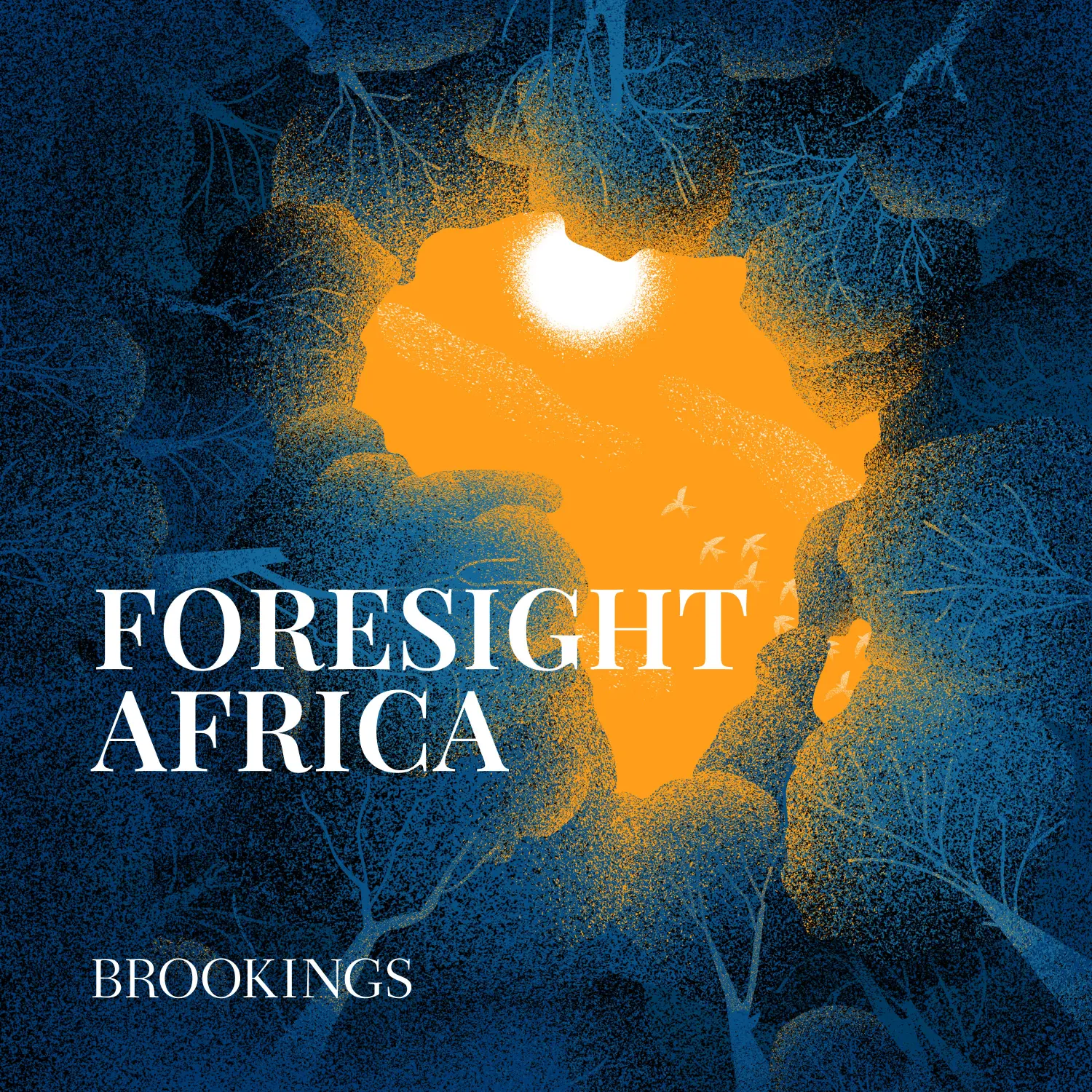
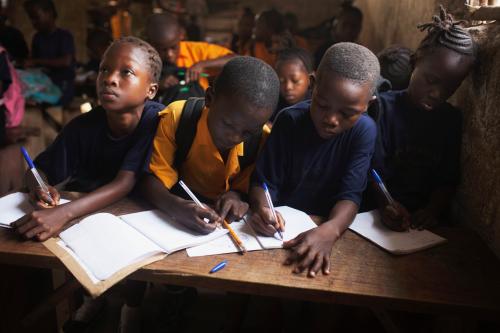
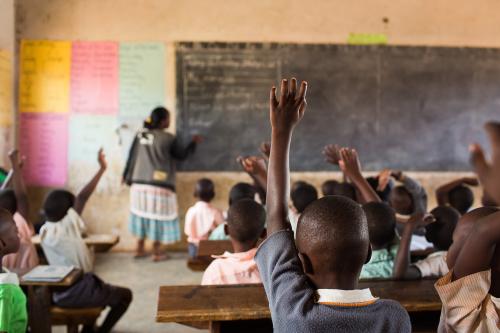
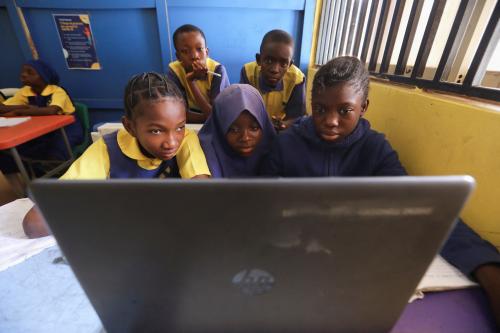
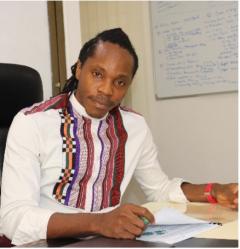
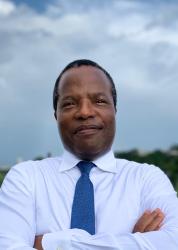


Commentary
PodcastHow Sierra Leone is getting more girls into STEM
May 10, 2023
Listen on
Foresight Africa Podcast